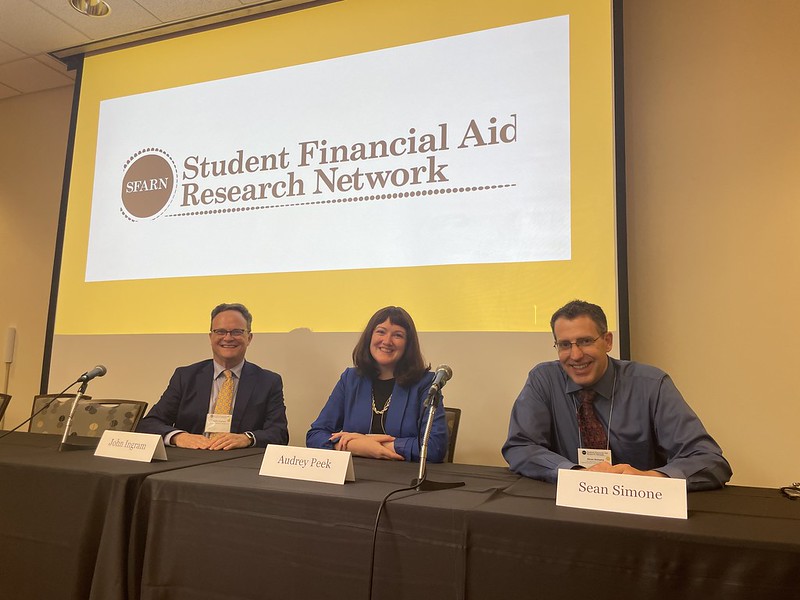
This July, the Pell Institute for the Study of Opportunity in Higher Education hosted higher education professionals from across the United States at the University of Maryland – College Park for its 41st annual Student Financial Aid Research Network (SFARN) Conference. As financial aid applications face delays for the second consecutive year, this gathering took on new urgency, focusing on the need to streamline and simplify the financial aid process for students and their families.
The conference brought together experts from colleges, universities, non-profit organizations, and state and federal agencies, offering a critical platform for collaboration. Financial aid researchers and practitioners delivered over two dozen presentations on various topics, including relations with the U.S. Department of Education, updates on the Better FAFSA, uplifting student voices, and exploring the real value of higher education.
A particularly timely panel featured experts U.S. Department of Education National Center for Education Statistics (NCES) Branch Chief Sean Simone, U.S. Department of Education National Center for Education Statistics Data Modernization Fellow Audrey Peek, and Ingram Market Analytics Principal Consultant John Ingram who discussed the critical need to simplify the financial aid process. With the FAFSA application delayed yet again, their insights highlighted the pressing challenges students and families face when navigating college finances. The panelists emphasized the ongoing efforts within the Department of Education to improve access to financial aid and enhance the tools available for financial planning in higher education.
The repeated delays in the FAFSA application process are more than just administrative hurdles—they represent significant barriers to education for millions of students. The insights shared at the SFARN conference are crucial in our ongoing efforts to dismantle these barriers and make college a reality for all students, regardless of their financial background.
Sean Simone provided an update on the NCES Longitudinal Surveys Program, noting that several key surveys, including the Baccalaureate Survey and the High School Longitudinal Study of 2009, have been suspended or scaled back for 2023-2024. These changes reflect a broader shift in how educational data is managed, which could have significant implications for understanding student outcomes and the effectiveness of financial aid.
Audrey Peek discussed recent updates to the IPEDS Data Tools, highlighting the redesign of summary tables to make them more accessible and visually intuitive. This enhancement aims to help researchers and policymakers better understand the data and make more informed decisions that impact students’ financial aid options.
John Ingram, a recognized expert in student financial aid and the strategic use of IPEDS data, addressed the current delays in FAFSA processing. He underscored the need for clearer financial information to help families navigate the increasingly complex landscape of college planning. “Refining Average Net Price (ANP) calculations are crucial for guiding prospective students and their families through the financial aspects of higher education,” Ingram stated, emphasizing the importance of making the financial aid process more comprehensible and manageable.
Ingram, a first-generation college graduate, spoke about the significance of supporting students’ fundamental needs. He expressed his enthusiasm for the SFARN conference as a space for collaboration and idea exchange, noting that the connections he made would be invaluable in guiding his university’s financial aid team and his work as a data analytics consultant.
The conference underscored the need to make higher education financially accessible and understandable for all students and their families, especially given the ongoing FAFSA delays. As the higher education community continues to grapple with these challenges, the SFARN conference remains a vital forum for developing solutions that ensure students can access the financial support they need to succeed.
Pell Institute Director Terry Vaughan captured the essence of the event, stating, “The repeated delays in the FAFSA application process are more than just administrative hurdles—they represent significant barriers to education for millions of students. The insights shared at the SFARN conference are crucial in our ongoing efforts to dismantle these barriers and make college a reality for all students, regardless of their financial background.”
As the conversation continues, the Pell Institute remains committed to advancing research and policies that simplify the financial aid process, ensuring every student can pursue higher education without unnecessary obstacles.